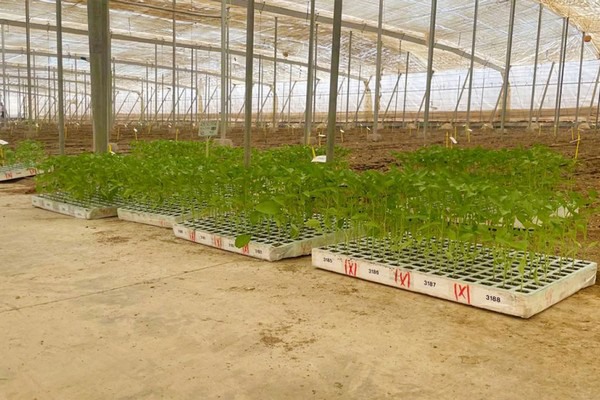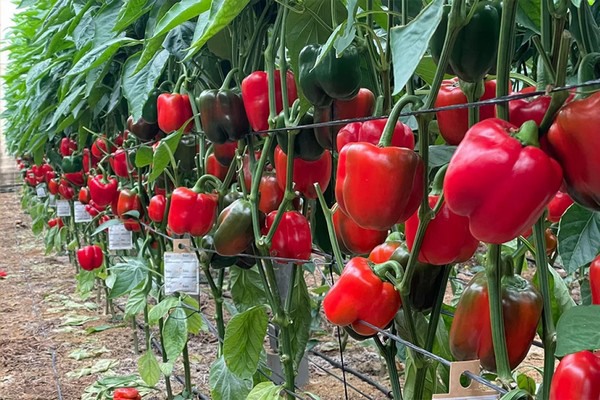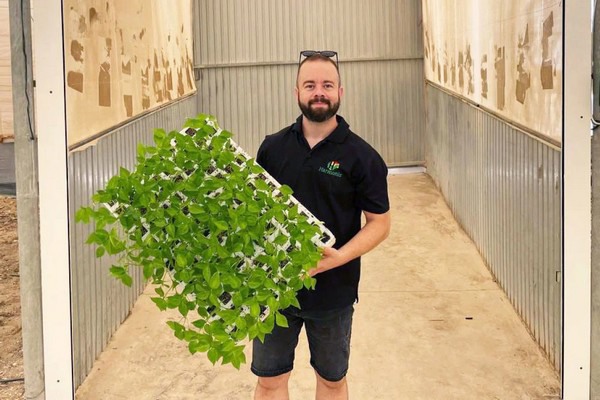Harmoniz Ibérica focuses on bell-type peppers, a growing segment in the pepper market, and guarantees a high yield of quality fruits. The pepper market, particularly the bell pepper segment, continues to grow thanks to the proven profitability of this crop in recent seasons. Medium and late cultivation cycles prevail, even in areas traditionally known for early cycles.
This trend is highlighted by José Martínez, pepper development technician at Harmoniz Ibérica, who explains that 'in areas like Berja or Dalías, where early cycles have always been favored due to the difficulty of growing in winter, transplants are increasingly being postponed as a result of much milder temperatures.

Moreover, farmers are looking to 'escape' increasingly hot summers, where pests proliferate more easily, by opting for late plantings, from the end of July until mid-August. 'The late cycle is the king,' says Martínez, noting that Harmoniz Ibérica is currently focusing its R&D on this cycle.
The seed company entered the pepper market two seasons ago with two California varieties for late cycles: Bernabel, a red variety, and Bonáyar, a yellow variety, which meet the demands of the entire value chain, from producers to end consumers.
"Our genetics are quite rustic," says Martínez, highlighting the strength of their materials on one hand and the plant structure on the other, characterized by short internodes and small leaves. The first quality promotes the development of a greater number of flowers and, consequently, fruits, while the second aids in the detection and control of pests, including Thrips parvispinus.
Bernabel is a variety that offers a high final yield, thanks to the thickness of its fruit's skin. The fruits are square, clearly defined with four lobes, and have a very attractive color, both in red and green, due to the absence of 'silvering.' Additionally, they have good durability both on the plant and post-harvest.
Bonáyar is also a variety that 'wins over producers and marketers.' For producers, it is prized for the size and weight of its fruits, which are ideal for flow-pack packaging, as well as for its yellow color, which does not turn orange when exposed to sunlight. Like Bernabel, it has excellent shelf life both on the plant and post-harvest.

The uniform production of both varieties throughout the entire cycle, combined with their resistance to powdery mildew, ensures successful commercialization. In this regard, Martínez explains, 'Pest and fungus issues often reduce production, making it difficult to meet contract obligations.'
With Bernabel and Bonáyar, however, 'the fruits maintain their quality, ensuring that growers can meet their schedules with clients and do so with a low usage of active substances.' Both varieties are also resistant to nematodes.
The Future
Aware of the importance of the late cycle in Almería – both for profitability and due to current climatic conditions – Harmoniz Ibérica continues to develop new bell pepper varieties to cover this entire transplant segment. "Soon, we will have new materials for the medium, medium-late, and extra-late cycles, which will complement Bernabel and Bonáyar," Martínez notes.

Finally, the company is focusing on developing unique pepper specialties to create new market opportunities. "We are looking for new options that allow our customers to differentiate themselves and encourage repeat purchases by consumers," Martínez concludes.
For more information:
Harmoniz
harmonizseed.com
